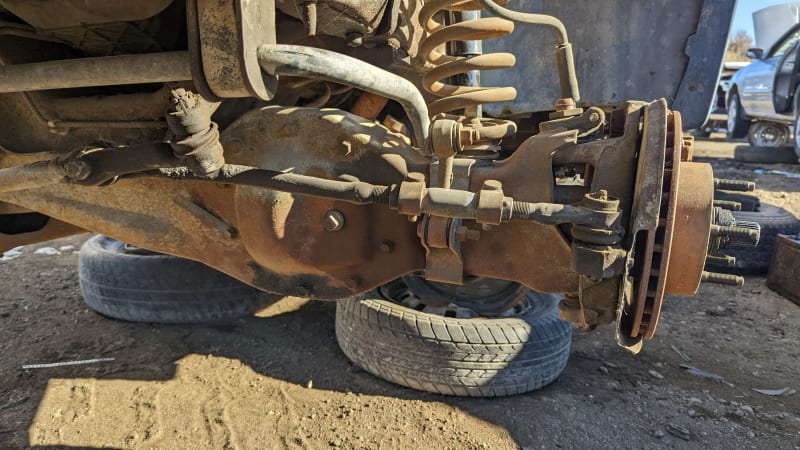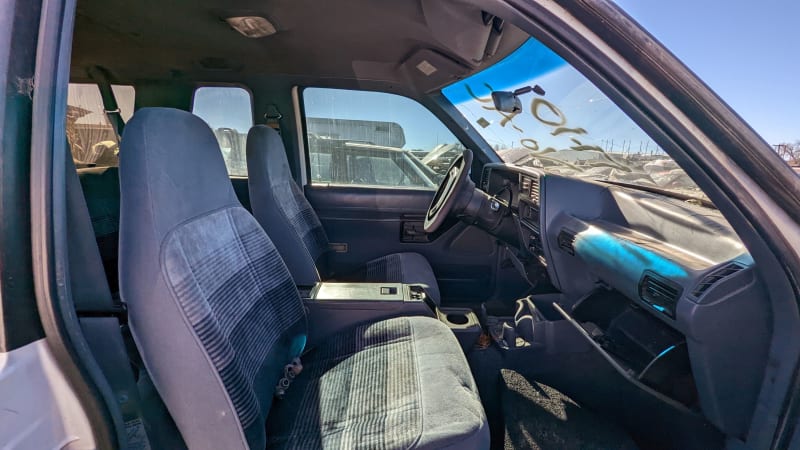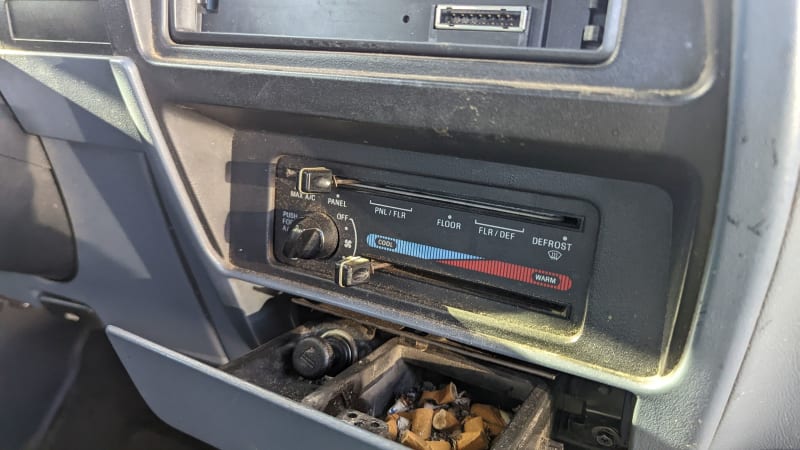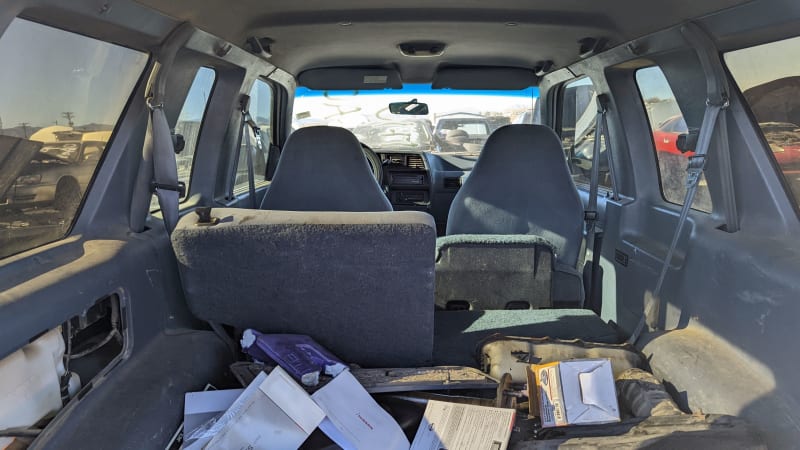Junkyard Gem: 1991 Ford Explorer Sport 2-Door 4×4

The idea of trucks shoving station wagons and even big sedans off showroom floors seemed far-fetched as the 1980s dawned. Then a bunch of Renault engineers descended on Kenosha and the XJ Jeep Cherokee appeared a few years later, for the 1984 model year. At that point, the idea of a truck comfortable enough to be used as a regular suburban commuter while looking adventurous made sense to American vehicle shoppers; today, the overwhelming majority of new vehicles sold on our shores are trucks or at least look like trucks. Ford took the next great stride in the truck-ization of our roads in 1990, when the first 1991 Explorers appeared in showrooms. Here’s one of those first-year trucks, found in a Denver-area self-service car graveyard.
The Explorer name wasn’t new to Ford at that time; Ford truck shoppers could get Explorer option packages starting in the late 1960s. At first it was just F-100 pickups but after a while there were Explorer Rancheros and even Bronco Explorers. As we can see from the dealer sticker, this truck was sold new at Fordland in Lakewood (which is now Larry H Miller Ford). That’s about 13 miles from its final parking spot just south of the Denver city limits.

The Explorer SUV has always been available as a four-door (Ford called these trucks “2-Door” or “4-Door” in 1991, so that’s the terminology I’m using here), while new two-door models remained available through 2003. The MSRP on this truck was $16,715, while the cheapest four-door ’91 Explorer with four-wheel-drive started at $17,694 (that’s about $36,855 and $39,015 in 2023 dollars).

The first-generation Explorer’s chassis was derived from that of its predecessor, the Bronco II (which was itself based on the 1983 Ranger small pickup). This is very much a truck, with truck-style ride quality, though this solid-looking front axle setup is really Ford’s late-1970s-technology Twin Traction Beam independent suspension. A rear-wheel-drive version was available as well.

The only engine available in the 1991-1994 Explorer (and its Mazda-badged Twin, the Navajo) was a 4.0-liter pushrod Cologne V6, a descendent of the engine that powered many Pintos, Mustang IIs and Capris back in the 1970s. Horsepower in 1991 was 155, rising to 160 for 1993. The base transmission was a five-speed manual, but nearly every Explorer customer (including the one who bought this truck new) opted for two-pedal driving.

Air conditioning was standard equipment in the first-year Explorer Sport (but not in the cheaper XL).

For the 1993 model year, Chrysler introduced (in dramatic fashion) the unibody Grand Cherokee. This truck had begun development as an American Motors design, and its combination of car-like ride and tough truck appearance (plus the ability to qualify for federal truck emissions and crash-safety specifications more lenient than those applied to a similarly appointed sedan) made it a big sales success. It also completed the process the XJ Cherokee and Explorer had begun. Soon, the automotive industry recognized that the new law would be switch to trucks or die, and that’s where we are today.
Four-liter power and as much exterior room as your heart desires.



